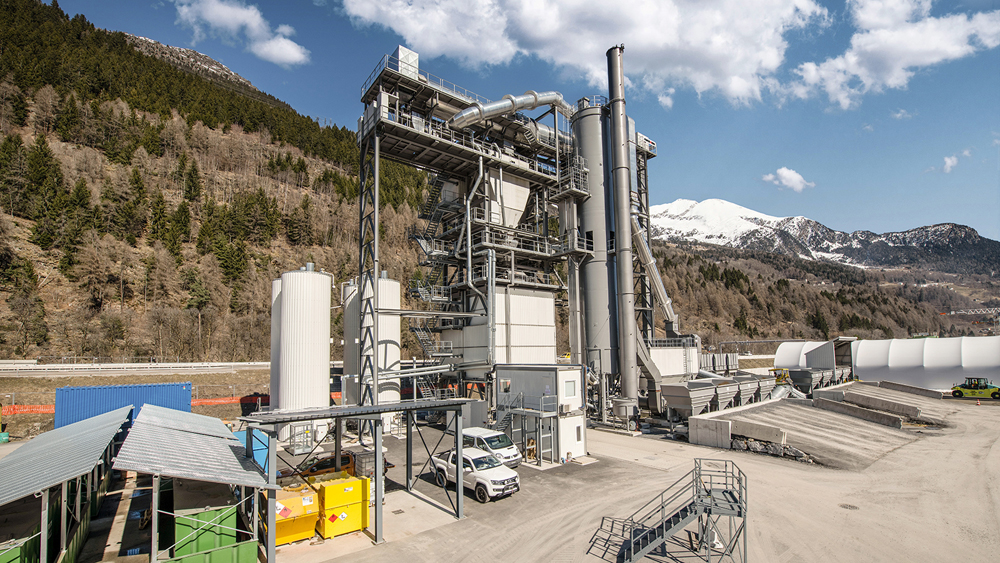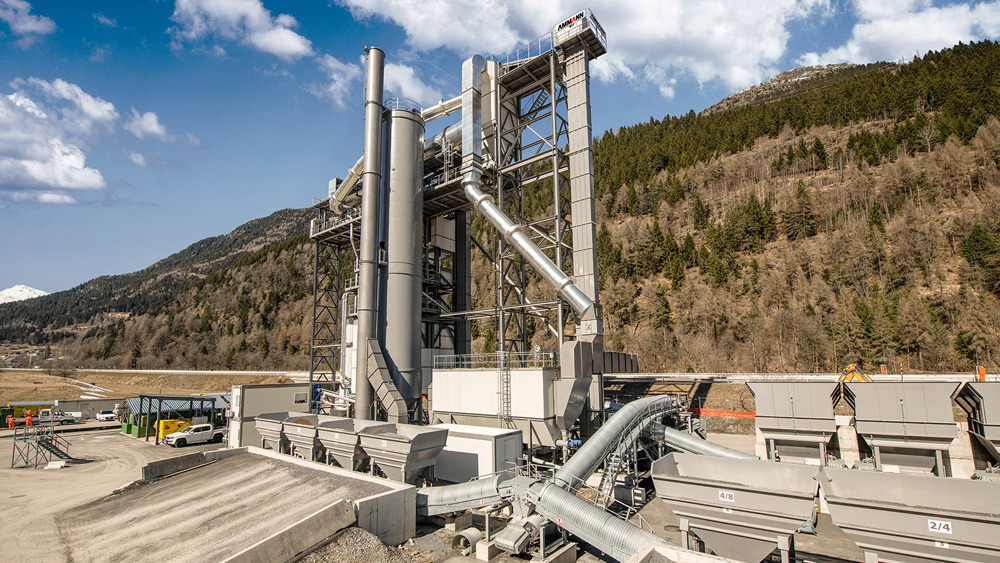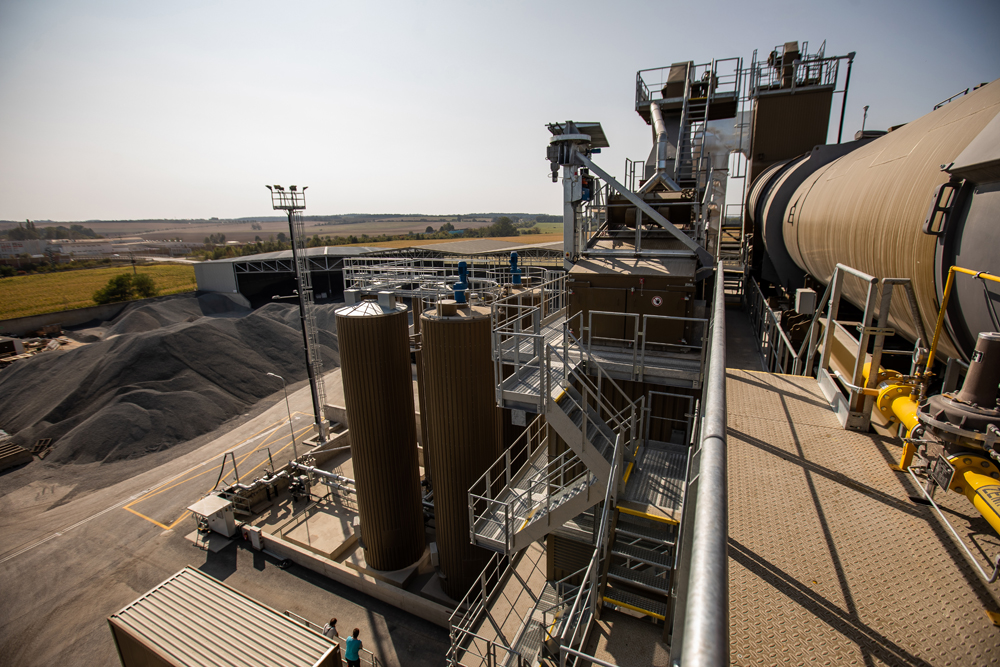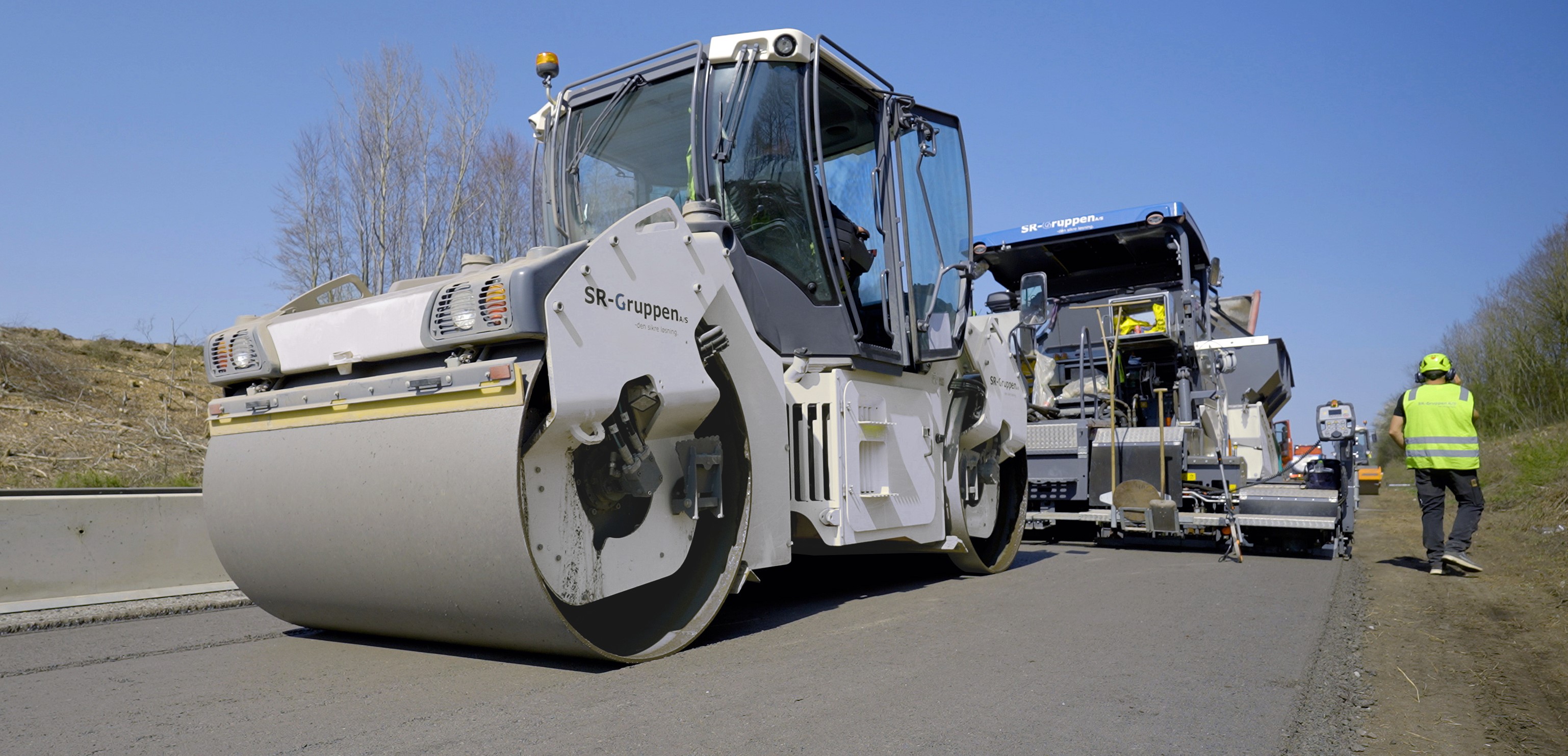
The highway is a key north-south connection from Basel to Chiasso in Switzerland. South of the well-known Gotthard Road tunnel, the 10km, four-lane section of highway is currently benefiting from a complete upgrade that will be completed in 2022. The total cost of the project is €236 million (CHF250 million).
The existing road base consists of material excavated during the driving of the Gotthard tunnel and this has proved a technical challenge. The aggregate has a fine-grain content of more than 8% and as a result, is not frost-resistant. In addition, the existing asphalt structure required reinforcement to handle the high stresses imposed by large traffic volumes and the high number of large trucks using the route.
The Swiss authorities have ensured that the project meets sustainability targets. The aim of the Federal Roads Office (Astra), the project’s owner and builder, is to ensure that existing materials can be processed onsite and reused in the new mix. And the use and transport of materials was a key consideration during project planning.
Planners calculated that 55,000tonnes of gravel, 119tonnes of RAP from the construction site, a further 21,000tones of RAP from other sites and 256tonnes of asphalt would be required for the work.
These material quantities would require 25,000 truck journeys. Worse still, the nearest asphalt plant was around 70km from the site and the trucks would have to use either the highway or local roads. This would have made the existing peak time congestion problem worse and resulted in delays with material supplies, as well as increasing road wear and posing a safety hazard. Clearly, another solution had to be found.
To tackle the problem, a site alongside the highway was selected for use in asphalt preparation and production. The site was on an old military airfield and the idea was to install an asphalt crushing plant, an asphalt mixing plant and a gravel washing plant with sludge press.
In addition, temporary access was planned between the highway and the construction site to reduce transport routes.
The project work for the temporary installations was put out to tender with the condition that required recycling percentages for the asphalt pavement would be met. In addition, the plants could only produce material from that specific site for the N2 project. After completion, the tender called for the plants to be dismantled and the site restored to its original condition.
The new asphalt pavement structure is being laid with three asphalt layers: a 3cm SDA 8-12 (semi-dense rolled asphalt) wearing course with 0% RAP; an 8cm AC B 22 H (binder course) with 50% RAP; and an 8cm AC T 22 H (base course) with 50% finishing asphalt. These lie on top of: an 11cm AC F 22 (bitumen-bound foundation layer) with 90% finishing asphalt; an 11cm AC F 22 (bitumen-bound foundation layer) with 90% finishing asphalt; and a 5cm thick seal on a 33cm frost protection layer.
In total, around 250,000 tonnes of asphalt is being produced for this project. The team is using very high percentages of recycled materials without having to use rejuvenation agents or suffer quality losses. This project also shows that bituminous-bound foundation layers can be produced with almost 100% asphalt.
The production site was established in spring 2018, with the installation of the plants beginning the following August. The asphalt mixing plant was ready for operation after four months. It could supply mix for the construction site in May 2019, after the approval of the test pavements.
In 2019, about 80% of the pavement in the central portion of the motorway section was laid and the work showed good quality across all the layers. Adjustments are being made when milling the existing asphalt layers and when crushing the milled material to ensure that the grain curve of the recycled asphalt is not too fine.
Additionally, the quality of the binder to be added to the AC B and H pavements is very important and requires attention. The penetration of this polymer-modified binder must not vary too much and must never fall below the lower value of 90 1/10 mm.
During 2020, the pavements have been laid on the two lanes and the hard shoulder in a south-north direction. In 2021 the work will be carried out in a north-south direction so that the rehabilitation can be completed by the end of the year. Residual work, such as the erection of noise barriers, will be carried out in 2022.

Ammann supplied the asphalt mixing plant, which is expected to produce a total of 250,000tonnes of asphalt onsite once the project is complete. The project team selected an ABP HRT mixing plant for the work as this unit suited the need for asphalt production containing a high percentage of recycled asphalt. An integrated, parallel drum system directly above the mixer is installed that optimises the material flow and at the same time minimises wear and tear within the recycling system. In the RAH100 system, the recycled asphalt is heated by a counter-current process. This allows the aggregrate and bitumen to be heated indirectly and protected from overheating. Using this system, RAP addition rates of 100% are possible.
The plant is able to produce 240-310tonnes/hour of asphalt, depending on moisture. The aggregates are stored in
15m³-capacity hoppers. Two silos (120m³ and 60m³) store the self-filler, while another (55m³) houses lime hydrate. The four bitumen tanks hold 80m³. Mixing is carried out in a 4tonne mixer, while the loading silo holds 300tonnes in four chambers.











